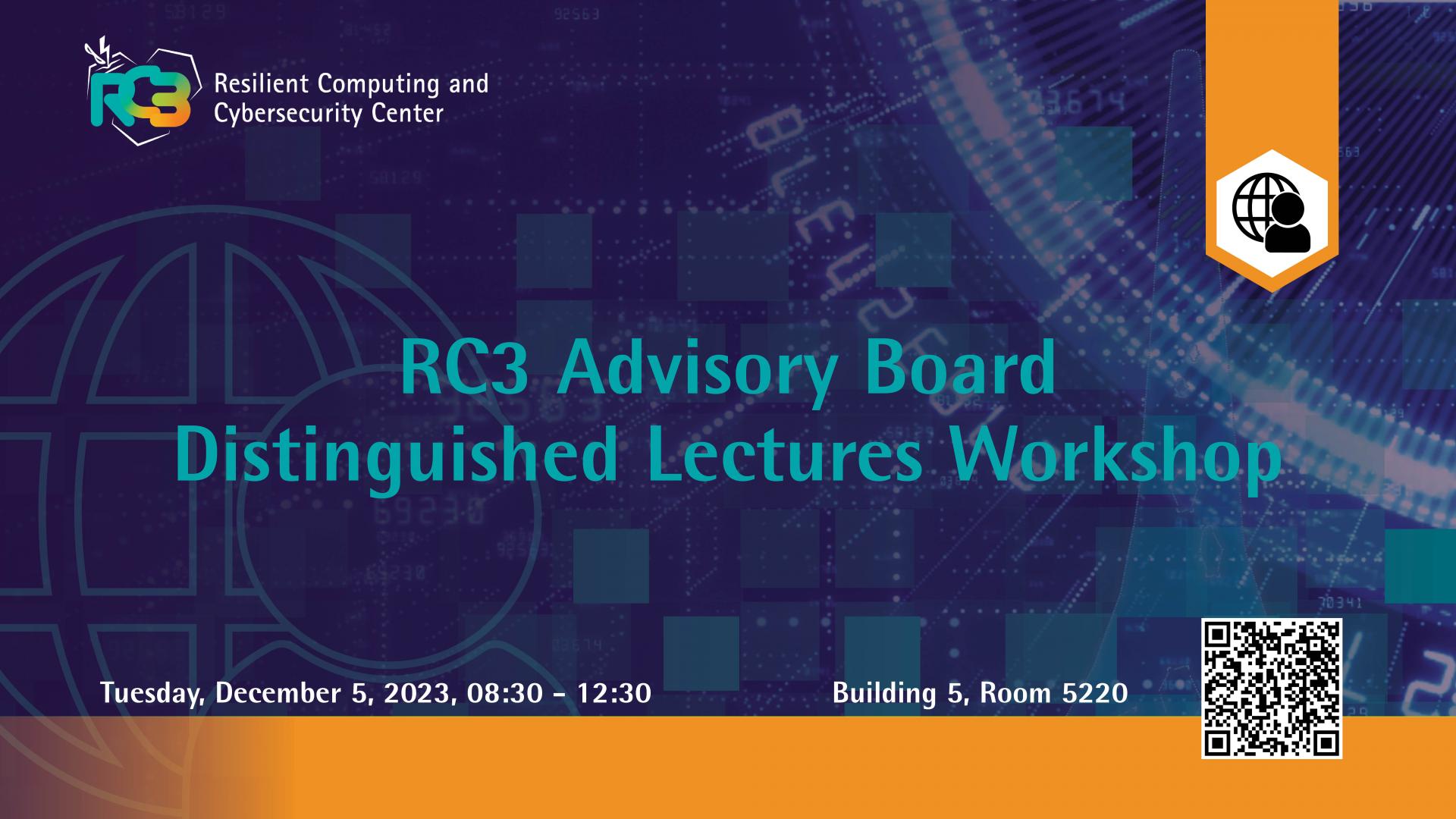Distinguished Lecture 1:
Strengthening Machine Learning-based Intrusion Detection Systems in Adversarial Environments
Prof. Wenjing Lou - 09:15 am - 10:00 am
Abstract
Machine learning (ML) has witnessed remarkable advancements in recent years, demonstrating its effectiveness in a wide array of applications, including intrusion detection systems (IDS). However, when operating in adversarial environments, ML-based systems are susceptible to a range of attacks. In this talk, we will discuss technologies designed to strengthen ML-based IDS. On one hand, we explore methods for enhancing the performance and robustness of IDS. We introduce a contrastive learning-based approach that builds highly discriminative IDS, enabling more effective differentiation between normal and malicious activities. On the other hand, we develop efficient security mechanisms to counter common adversarial attacks. This includes an adversarial example (AE) detector designed to identify suspicious inputs at the model testing time, filtering out potential AEs, and a robust model evaluation method that leverages latent space representations to build resiliency in model aggregation against model poisoning attacks in federated learning. This talk will share the outcomes of our research in fortifying ML-based IDS, shedding light on the advancements and techniques that can enhance the security and robustness of these systems in adversarial environments.
Brief Biography
Wenjing Lou is the W. C. English Endowed Professor of Computer Science at Virginia Tech and a Fellow of the IEEE. Her research interests cover many topics in the cybersecurity field, with her current research interest focusing on wireless networks, blockchain systems, trustworthy machine learning systems, and security and privacy problems in the Internet of Things (IoT) systems. Prof. Lou is a highly cited researcher by the Web of Science Group. She received the Virginia Tech Alumni Award for Research Excellence in 2018, the highest university-level faculty research award. She received the INFOCOM Test-of-Time paper award in 2020. She is the TPC chair for IEEE INFOCOM 2019 and ACM WiSec 2020. She was the Steering Committee Chair for the IEEE CNS conference from 2013 to 2020. She is currently a steering committee member of IEEE INFOCOM and IEEE CNS. She served as a program director at the US National Science Foundation (NSF) from 2014 to 2017.
Distinguished Lecture 2:
How Neuroscience and Artificial Intelligence are Radically Changing the Software Engineering Field
Prof. Henrique Madeira - 10:30 am - 11:15 am
Abstract
Software development is an intellectually demanding task. The high complexity of software, particularly code complexity, is traditionally considered the main contributing factor to software reliability issues. Complex code is hard to test, difficult to comprehend by programmers, and hence difficult to maintain. The result is that software defects (i.e., bugs) and vulnerabilities persist as the most enduring and hard-to-solve problems of the software industry. Unreliable software represents a huge cost to society.
Since software bugs result from human errors, a recent research trend has emerged using neuroscience to identify the brain mechanisms involved in software error-making/discovery, and the correlated psychophysiological manifestations that can be captured by wearable and non-intrusive devices (e.g., bracelets and smartwatches). This has the potential to create a radically new neuroscience-enabled technology to assist software developers with identifying conditions that may cause programmers to make software faults or bugs escape to human attention. Although this research line is relatively new, the number of works in recent years has exploded.
This talk addresses the recent advances in this interdisciplinary area and describes some of the most recent experimental results and corresponding neuroscience-enabled tools that can help software programmers reduce the number of bugs in software products.
Brief Biography
Henrique Madeira is a full professor at the University of Coimbra, where he has been involved in research on dependable computing since 1989. His main research interests focus on the experimental evaluation of dependable computing systems, including security evaluation and benchmarking, fault injection techniques, and error detection mechanisms, subjects on which he has authored or co-authored more than 250 papers in journals and refereed conferences. His recent research projects involve two research directions: a) Assured AI, focusing on providing safety and security guarantees in critical applications that use AI, and b) human factors in software engineering, particularly focused on interdisciplinary approaches using neuroscience and biometrics to improve software quality. He has coordinated or participated in dozens of projects funded by the European Commission and by Portuguese Government.
Distinguished Lecture 3:
Explainable AI for Malware Detection and Analysis
Dr. Fabio Martinelli - 11:15 am - 12:00 pm
Abstract
In this talk we present a method relying on application representation in terms on images used to input an explainable deep learning model designed for Android malware detection and family identification. Moreover, we show how the explainability can be considered from the analyst to assess different models. We present also experimental results demonstrating the effectiveness of the proposed method and a tool for performing such experimentations. We also briefly show other research activities done in the field of malware analysis.
Brief Biography
Fabio Martinelli is a research director of the Italian National Research Council (CNR). His main research interests involve security and privacy in distributed and mobile systems and foundations of security, privacy and trust. He founded and chaired the WG on Security and Trust management (STM) of the European Research Consortium in Informatics and Mathematics (ERCIM) and the WG 11.14 in secure engineering of the International Federation of Information Processing (IFIP). He coordinated the EU NESSoS Network of Excellence in Future internet Security and the EU Training Network on Cyber Security (NeCS). He also served as expert in the EU H2020 Protection and Security Advisory Group (PASAG) and is vice-chairman of the Board of the European Cyber Security Organization (ECSO) and co-chairs ECSO WG6 on strategic research and innovation agenda (SRIA).
He is currently part of the ECCO project experts for supporting the ECCC and NCCC in Europe.
